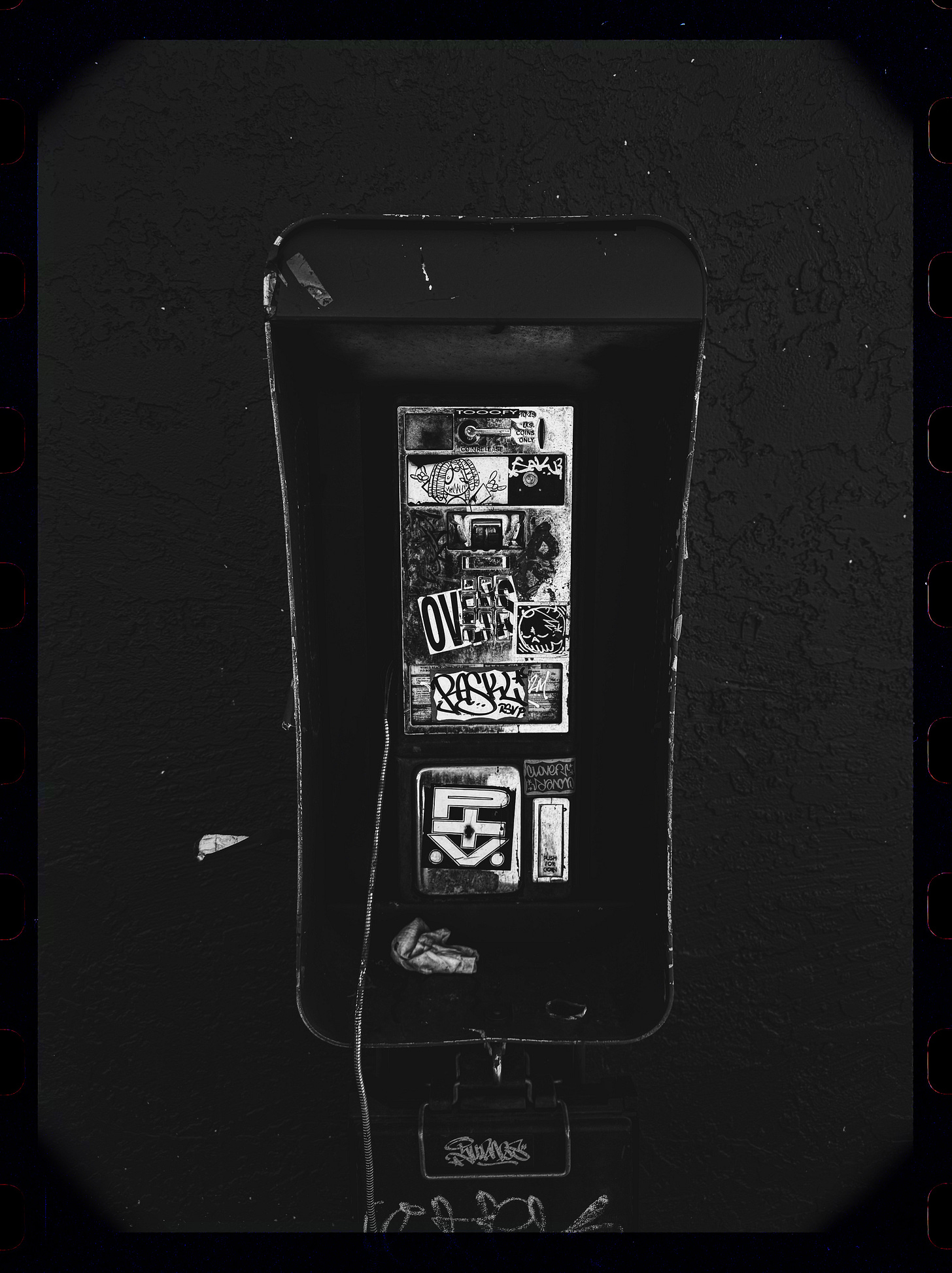There’s a guy on YouTube who mows lawns. I find his videos addictive.
It’s weird to write that sentence because I don’t even like watching myself mow the lawn while I’m mowing the lawn.
But this guy tackles the bad ones, the lawns that make you assume the people inside are doing drugs, the ones that tempt even the most empathetic neighbors to call the cops.
And he does it for free.
He timelapses his videos into dopamine-releasing makeover stories, condensing hours of mowing, trimming, and clearing into the most oddly satisfying half hour of your day. About a million people watch each one.
This guy is an artist with a string trimmer, a virtuoso with a mower. He reveals sidewalks where you would swear there couldn’t be one, even weeding the cracks like I can’t be bothered to do on my own home.
The closest thing I could compare it to is the feeling of a fresh new haircut. It’s that satisfying.
If this guy’s first toy wasn’t a Fisher Price lawn mower, I’d eat my hat.
He seems like he was born to do this, not to just cut peoples’ grass, but to perform lawn transformations as a public service and make oddly satisfying videos about it.
He has turned a mundane chore into poetry in motion.
It’s hard to imagine this guy ever going home with anything but a smile on his face.
Most people would say he has found his calling. Who am I to disagree?
We all want to feel that we are doing the singular thing that we were put on the planet to do - floating through the air like Michael Jordan, preparing a Beef Wellington like Gordon Ramsay, or destroying democracy like a monopolistic tech bro.
People don’t just perform their calling, they become their calling. Calling is intertwined with identity, shaping our education, marriage, career, and life.
Going to the Chapel
The summer after second grade, my mom loaded me up in the family station wagon with my siblings. She packed a duffle bag with shorts, t-shirts, and swim trunks and entrusted me with our family’s only sleeping bag.
When I was younger, I would’ve sworn that our destination - Louisville, Nebraska - was two or three hours away. In reality, it’s about four episodes of Bluey away (they’re eight minutes long, if you’re not a parent, or if you’re not a cool parent).
She dropped me off at an old Air Force “missile control” station that had been converted into a Christian summer camp. No AC. Communal showers. Food that could be repurposed as spackle (and maybe should’ve been).
It was there, between the homesickness, water balloon fights, and skits about heaven and hell that I remember feeling called to ministry for the second time.
The first time was when I was in kindergarten or first grade. I remember that I was putting something away in the hall closet, and I was suddenly struck with the idea that I wanted to preach like our pastor David. It felt like a calling.
These days, I would say that I was absolutely enamored, even at that age, with David’s use of words, his oratorical flair, and his command of a room. As the third of four siblings, one who often felt like a fish out of water at school, I loved the idea of my voice mattering, of it moving people to tears, life change, and action.
But at summer camp, I heard about Africa, about how there were so many people there who would die never having heard the gospel of Jesus Christ. At the tender age of seven, I learned that if people like me didn’t do something, these people would perish in eternal damnation because there were simply too few men who would study and preach the Word of God.
I say “men” because women weren’t allowed to do this job, naturally. Why would we need fifty-one percent of the population to participate in this “all hands on deck” mission?
During the altar call, it took everything within me to stay seated and not go volunteer myself for a life of overseas missions work. But since I had received several stern warnings about not losing or misspending my ten dollars of snack-shack money, I thought it was possible that I wasn’t ready to be drafted into the Lord’s army quite yet.
Am I The Only One Feeling This?
Every summer, a Christian organization rents out college campuses to host weeklong conferences for high school students.
Pot and partying are replaced with prayer and preaching for a few weeks in June and July while the undergrads are home waiting tables for textbook money.
It’s summer camp, but when you host it in an auditorium with stadium seating and a million dollar sound system, you get to call it a “conference” and give it a cool name like “Riot,” or “Mix,” or “Engage.”
Our group the summer before my junior year included Alicia and Tim (names changed because adolescence is brutal).
I had been harboring a crush on Alicia since freshman year when Tim joined our youth group. Tim was a sun-soaked athlete whose hijinks probably weren’t even notable among his teammates but were positively scandalous in youth group.
He would sneak out of “lock-ins” (aka church sleepovers) to make out with girls, get McDonald’s delivered to him, and generally assert his personal autonomy however he saw fit.
By coming to the summer camp conference, he was well on his way to having the bad-boy-to-born-again transformation story that (literal) choir boys like me deeply envied.
Still, I couldn’t wait for Alicia to see that she was playing with fire and to run into my not-a-little self-righteous arms.
If you’ve never been to one of these conferences, you should know that they’re usually set up with a specific rhythm.
Students load fifteen-passenger vans on Sunday right after church. They arrive at their chosen college campus for the conference in the late afternoon for registration. We always liked this university in Illinois that had a Taco Bell and Burger King instead of lunch-lady-slopped cafeteria food.
Sunday evening, there’s a late night worship session (aka rock concert for Jesus) to set the tone for the week.
Each weekday, there is a morning session, followed by “quiet time” (aka read your Bible and pray time), classes, lunch, free time, and dinner.
After dinner, everyone convenes in the auditorium for the evening session.
Evangelicals are no dummies, so they frontload the week with funnier speakers and Christian improv comedy groups (yes, those are a thing) to soften the hearts of teenagers who genuinely believe they are too cool to be there.
The evening sessions grow more and more serious as the week progresses, culminating in the full-court-press gospel presentation and actual “come to Jesus” altar call on Thursday night.
Even the improv group is in on it, usually performing some kind of recreation of the crucifixion to a vaguely spiritual pop song, often because one of their characters drank alcohol or had sex outside of marriage.
After the speaker finishes their impassioned sermon, the worship/rock band returns to the stage to play songs with titles like “I Surrender” while youth pastors line up at the front of the auditorium to receive crying teens who are ready to lay their life down for Jesus.
If you’re already “saved,” this moment invites you to double-down on your commitment to the Almighty, either recommitting yourself to your faith or taking steps to become a missionary or a pastor.
Just as I had when I was in first grade, second grade, and junior high, I felt that calling again.
How could you not?
I had seen orphans begging on the streets of India. I had served sandwiches to homeless people and taught Bible lessons to kids growing up in the projects.
How could anyone go from seeing the life-changing power of unconditional love and then choose to study computer science and get a well-paying job?
I earnestly expected the auditorium to erupt into youths tearing out the seats and stampeding their way onto the mission field.
Except. They didn’t.
In fact, barely holding back tears of profound gratitude for my eternal salvation, I looked to my left and saw Alicia and Tim flirting.
I didn’t begrudge them. I didn’t even envy them.
In that moment, I realized that I wasn’t like them.
This whole Jesus thing was obviously resonating more deeply with me than it was with my peers.
If we were to save Christianity from being “one generation away from going extinct” (yep, that’s a real thing they said) and save the whole world from going to hell (with or without the handbasket), then somebody had to do something about it.
And clearly, that somebody was me.
The Dinner
When we got home from camp the conference, I asked my parents if we could go out to dinner, just the three of us.
I nervously beat around the bush as we grazed our way through a platter of Chili’s chips and salsa.
When our entrees arrived, I confessed that the reason I had asked my Hindu father and Christian mother out to dinner is that I wanted to accept the “call to vocational ministry” (aka I wanted to go to Bible college and become a pastor).
I wasn’t sure if my Indian father, who not-so-subtly nudged me to become a doctor, would rend his garments or if he would just rub ash through his hair while wailing.
He did neither.
Instead, my mom answered, “We already knew.”
The Narrow Path
I know I might sound off-puttingly jaded about the whole thing.
After all, I know many people whose lives have been genuinely changed in moments like the one at the conference. I know people who have confessed affairs and saved their marriages. I know people who stopped smoking and drinking cold turkey because they let Jesus into their heart.
But I also know people who took out $40,000 in debt to graduate Bible college just to find a job in ministry that pays $35,000.
I know people who were running from their sexual orientation or trying to fill a codependency black hole.
It seems to me that maybe we shouldn’t let sixteen-year-olds decide their college and career because the key change in the alt-rock spiritual anthem hit just right on a Thursday night.
When I neared the end of Bible college, a Lutheran friend of mine asked how the “screening” for ministry placement was going.
I had no idea what she was talking about.
She told me that in her denomination, prospective ministers had to undergo personal and psychological evaluation to make sure they were fit to serve as clergy.
Then she looked on in bewilderment when I told her that evangelicals don’t do it like that. You create a resume, and you shop it around for youth pastor and worship pastor jobs until a small desperate church is willing to take a risk on a 22-year-old idiot.
At the time, I scoffed at how stuffy and formal their ministry placement process sounded.
Now I realize that sometimes calls are just wrong numbers.












